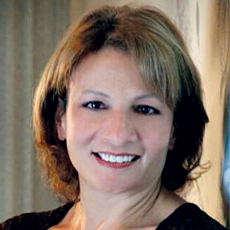
Working in long-term care for over 35 years, I’ve heard various residents referred to as “cute” nearly every day. “Cute” competes with “spry” and “adorable.” They’re called “honey” and “sweetie” as a means of communicating our concern for them. We need to rethink how the infantilization of our elderly is received by them and their families.
Our residents are not cute.
The man who happens to be small in stature hasn’t spent his 80 years in pursuit of being cute. He may have fought for our country overseas, and he may have seen horrors and heroism beyond our comprehension. He probably lost his parents, maybe his wife, or even his children. He may have survived our country’s deepest Depression and worked to feed his family. He may have loved ones too far away to ever see again, and carries those cares and trepidations inside, visible only to him.
The woman with the glorious smile and sweet face may have survived abuse and worked to ensure her children’s safety. She may have pursued education for herself during a time when the efforts of women to be educated were ignored. She may have immigrated to our country after the terrors of the Holocaust or the oppression of the Soviet era. She may have spent hours alone, after her children were asleep, learning to read and write in the language of her new home.
When my own father needed care, the workers who provided it called him “sweetie” and “honey.” I drew them away individually to explain to them that, while he was a terrific dad and a great person, he had definitely never been “sweet.” He had performed submarine duty in the Pacific theater during WWII. He had held several jobs simultaneously to feed his family of six. He had supported his children through all of our decisions, good and bad, and made sure we were all were college-educated. He was admired, adventurous, intelligent, respected, and revered. Then, at the end of his life, when he needed care, he became “sweetie.”
It grinds my gears as a professional in the area of geriatrics, that we minimize and reduce our clients because they’re members of a “no-longer-useful” population. As caregivers of the elderly, it is our job to respect and support our residents and their families. Labeling an elderly person who needs care with a term that should be restricted to children diminishes them and ignores their value as productive people in our society. Stop calling them “cute.”
Jean Wendland Porter, PT, CCI, is the Regional Director of Therapy Operations at Diversified Health Partners in Ohio.




